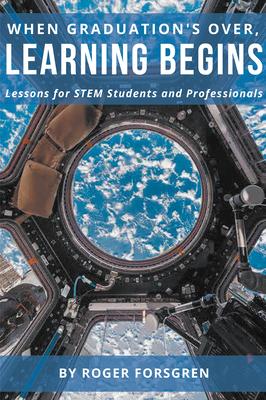What They Didn't Teach You in School: Lessons for STEM Students and Professionals
Science, Technology, Engineering, and Math education has been described as, "drinking from a firehose." STEM students are required to absorb an overwhelming amount of technical information before they can earn their undergraduate degrees. But it takes more than a thorough understanding of math, science, and engineering concepts to become successful in today's job market.
NASA's former Chief Knowledge Officer, Roger Forsgren, was responsible for training the agency's technical workforce and provides critical lessons learned for STEM students and graduates to build successful careers as they compete in today's workplace.
- Being an introvert in an extroverts' world: You may certainly be the smartest person in the room but that may not be enough to convince a client, make a persuasive presentation, or effectively manage others. Learn how to remain in your comfort zone yet still make a compelling impact by becoming an ambivert.
- Communication Skills: How to get your point across and express yourself in a cogent, concise manner. How to make yourself heard, and respected, in a group of experienced professionals.
- Critical Thinking: Avoid jumping to conclusions by training yourself to look beyond the obvious for the real clues to a problem or situation.
- Ethics: STEM professionals possess unique skills, but such technical expertise also requires a sense of personal responsibility ensuring your talents are being put to the best use for yourself and for society.
Case studies have proven to be valuable learning tools and Roger Forsgren includes twelve compelling historical case studies that demonstrate the critical knowledge needed for STEM students as they progress through their careers.
